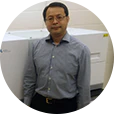
Browse All Used Microcentrifuges
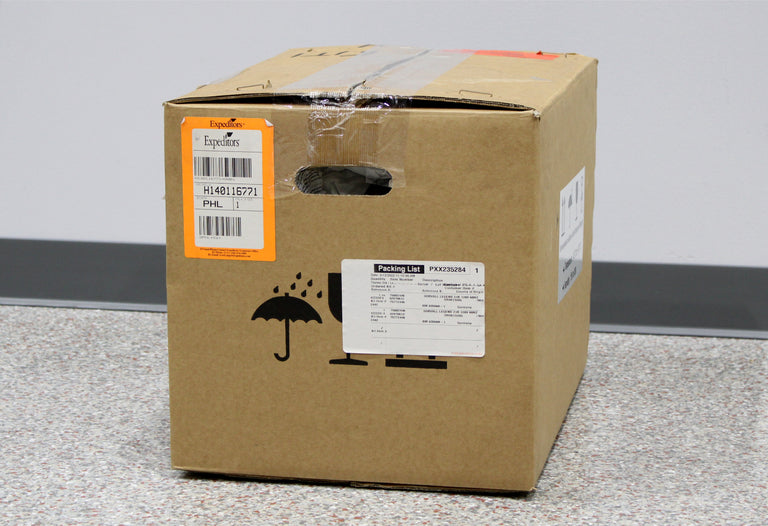

Centrifuge, Microcentrifuge
Thermo Sorvall Legend Micro 21R Benchtop Microcentrifuge 75002446 with Rotor
Item No. 28049
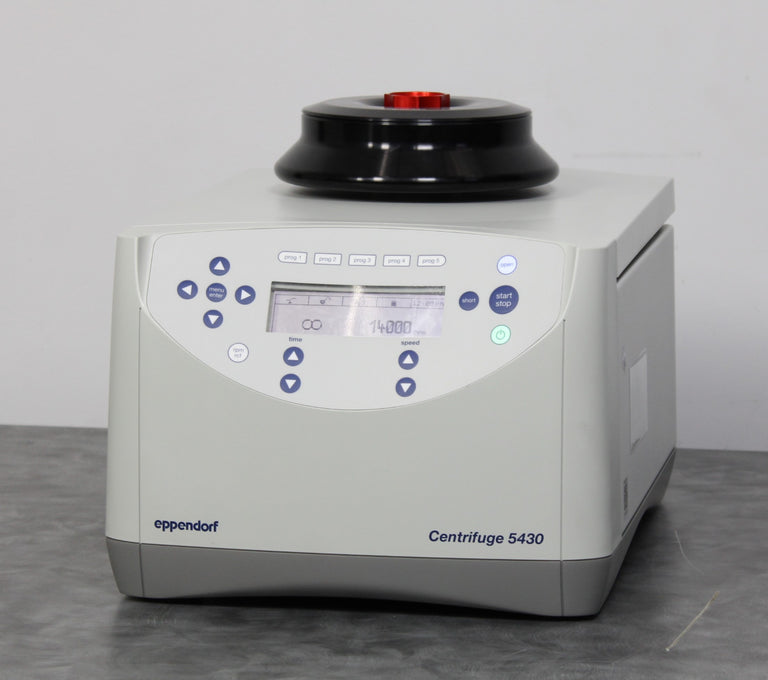
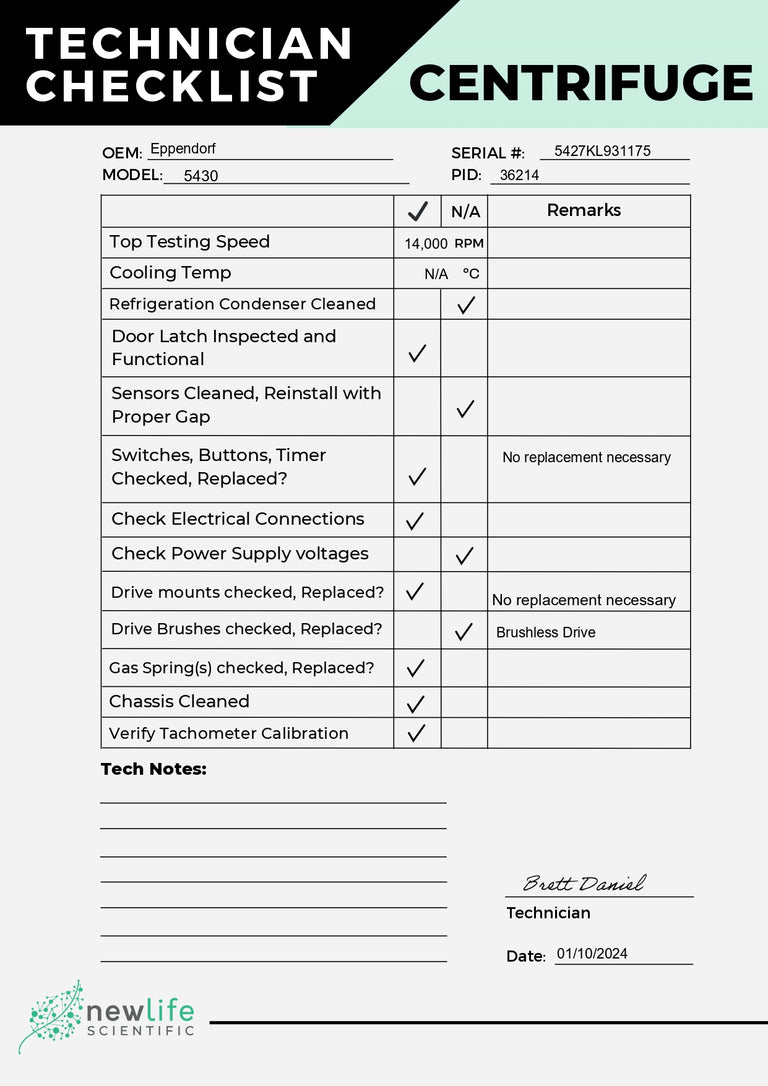
Centrifuge, Benchtop, Low Volume, High RCF
Eppendorf 5430 High-Speed Benchtop Microcentrifuge with FA-45-30-11 Rotor
Item No. 24024
• Mfg. Date 2021
• 17,500 rpm
• 30,130 x g
• 48 x 1.5/2 mL, 6 x 50 mL, 2 x MTP


Blender Homogenizer
Next Advance Bullet Blender 24 AU Gold 1.5mL Microcentrifuge Tube Homogenizer
Item No. 27075
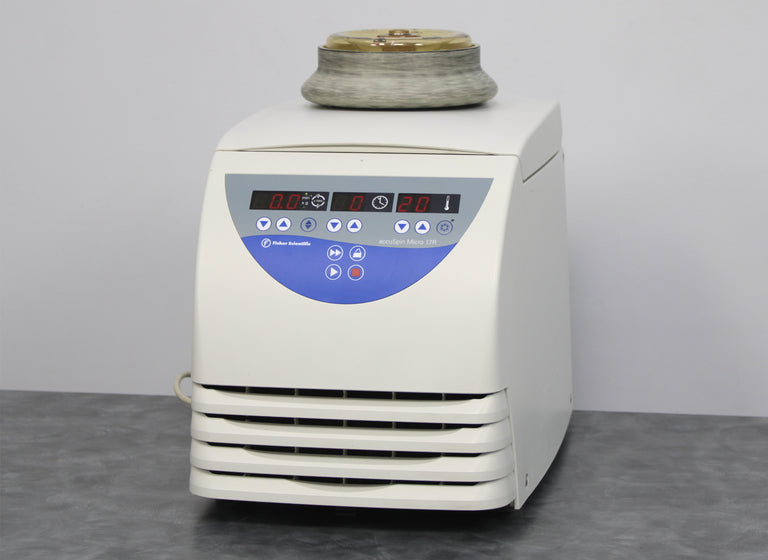
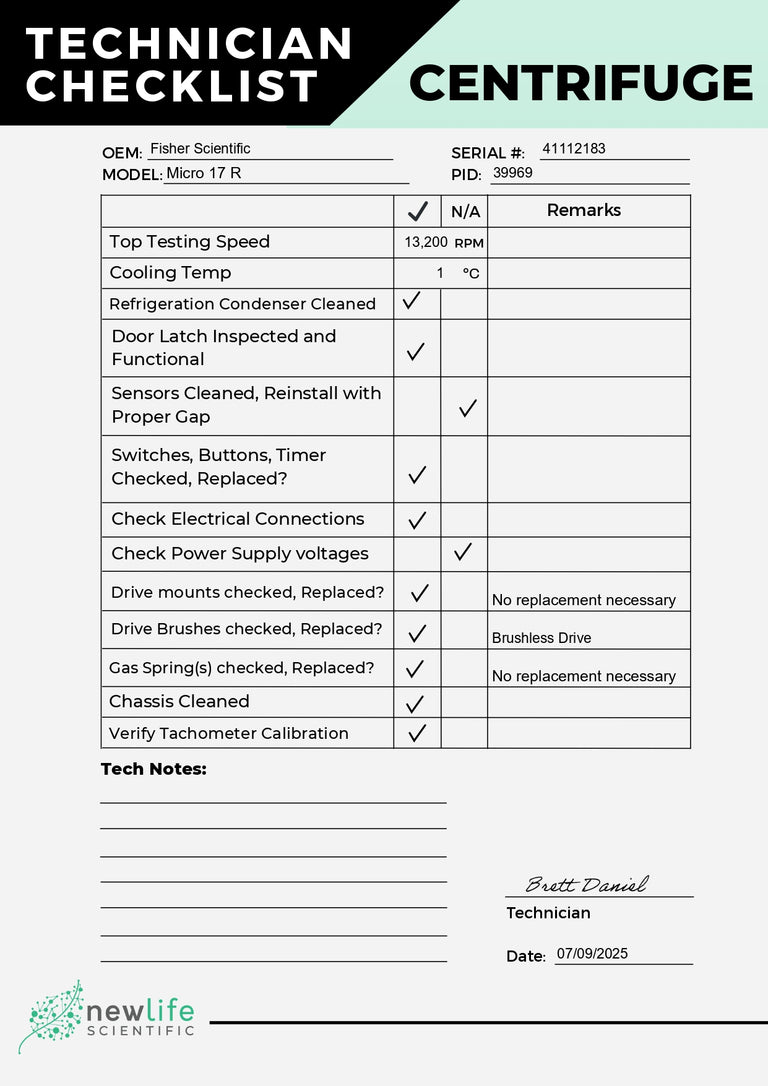
Centrifuge, Microcentrifuge
Fisher AccuSpin Micro 17R Benchtop Microcentrifuge 75002463 and Rotor 75003424
Item No. 27350
• 13,300 rpm
• 17,000/17,999 x g
• 24 x 1.5/2 mL
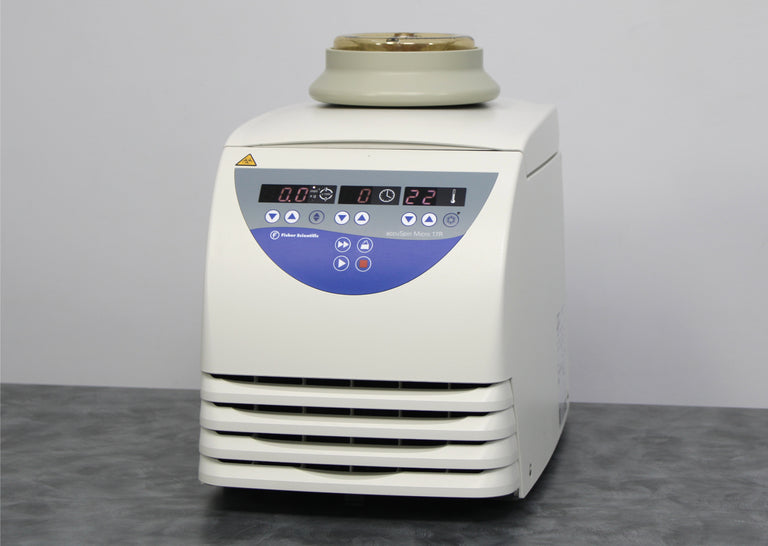

Centrifuge, Microcentrifuge, Refrigerated
Thermo Fisher AccuSpin Micro 17R Benchtop Microcentrifuge 75002463 with Rotor
Item No. 27920
• Mfg. Date 2019
• 13,300 rpm
• 17,000/17,999 x g
• -9°C to +40°C
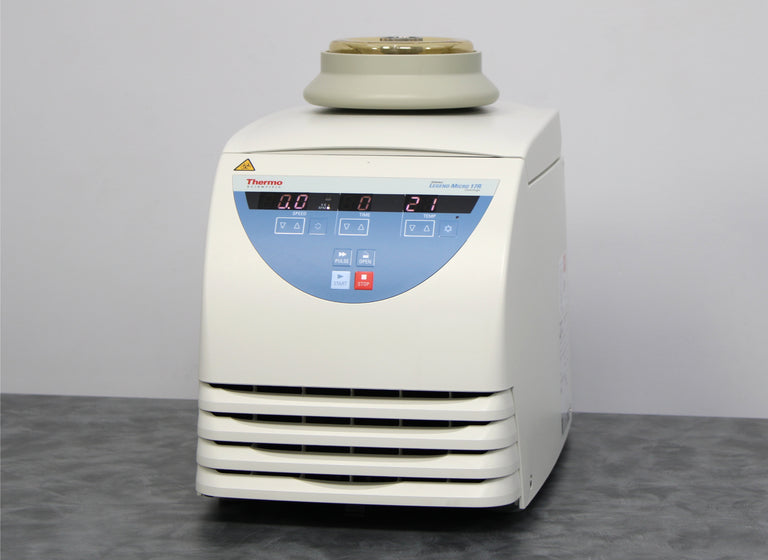

Centrifuge, Microcentrifuge, Refrigerated
Thermo Sorvall Legend Micro 17R Refrigerated Benchtop Microcentrifuge 75002441
Item No. 27921
• Mfg. Date 2019
• 13,300 rpm
• 17,000 x g
• -9°C to +40°C
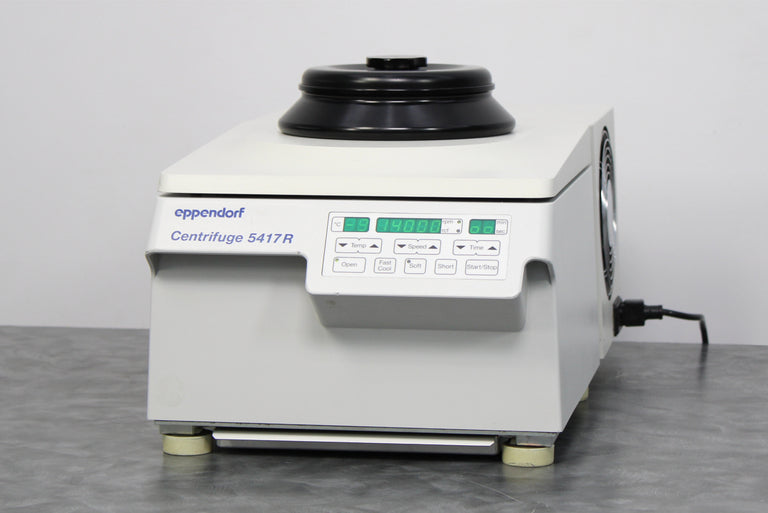
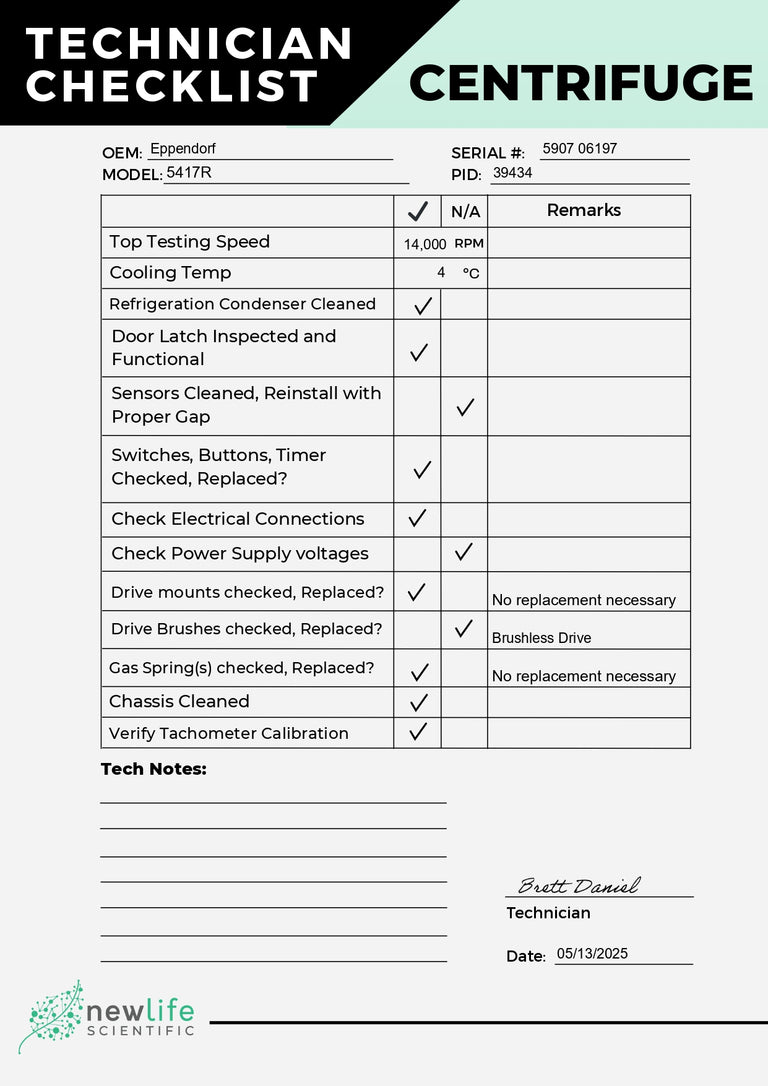
Centrifuge, Microcentrifuge, Refrigerated
Eppendorf 5417R Refrigerated Benchtop Microcentrifuge 5407 with F45-30-11 Rotor
Item No. 26894
• Mfg. Date 1999
• 14,000 rpm
• 25,000 x g
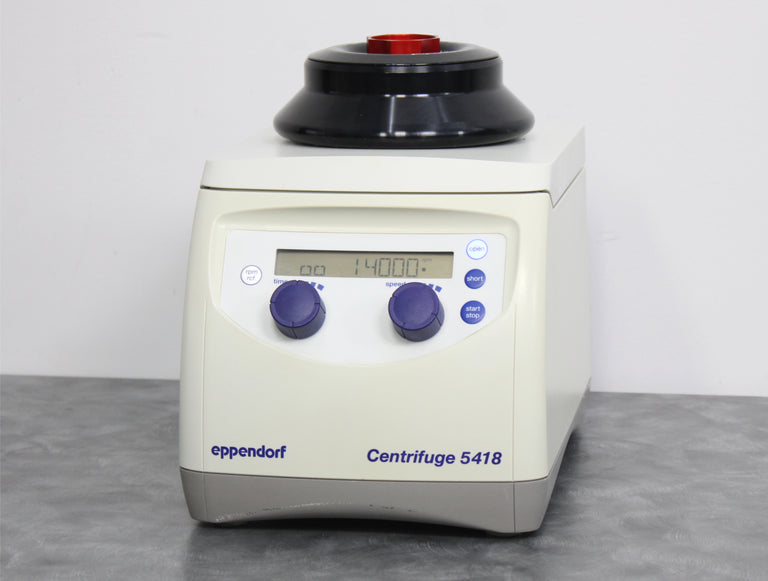
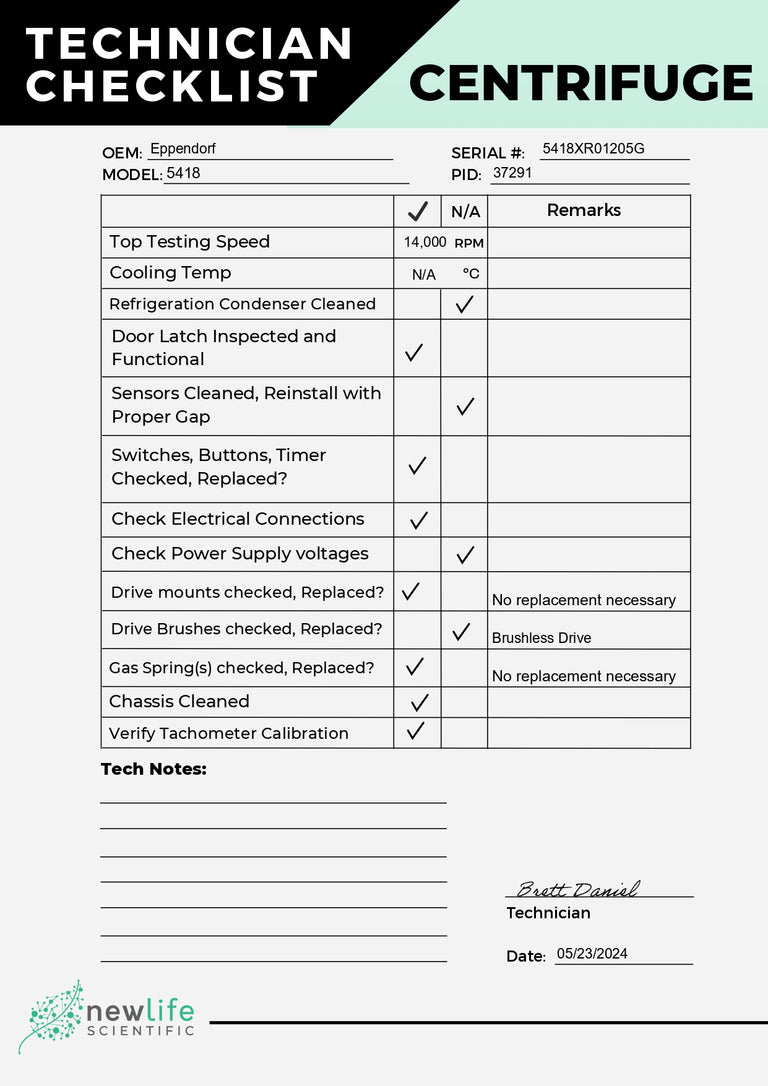
Centrifuge, Microcentrifuge
Eppendorf 5418 Benchtop Microcentrifuge with FA-45-18-11 Fixed Angle Rotor
Item No. 24988
• 14,000 rpm
• 16,873 x g
• 18 x 1.5/2 mL
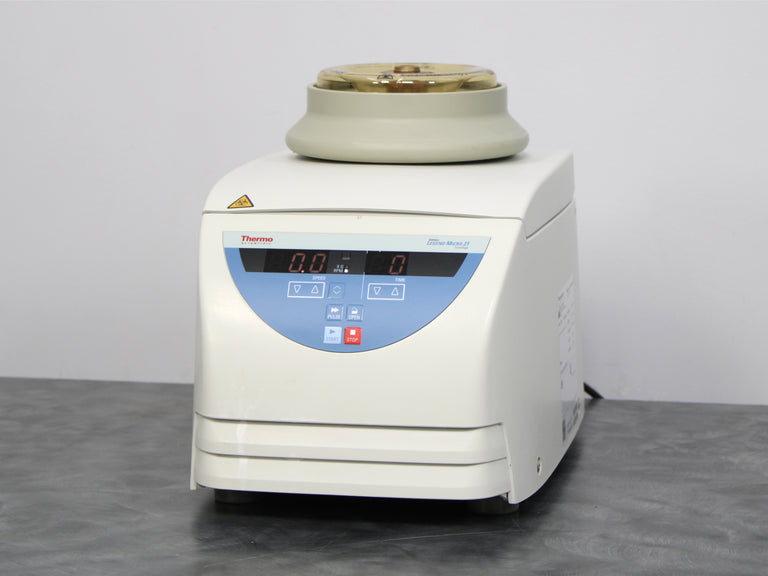
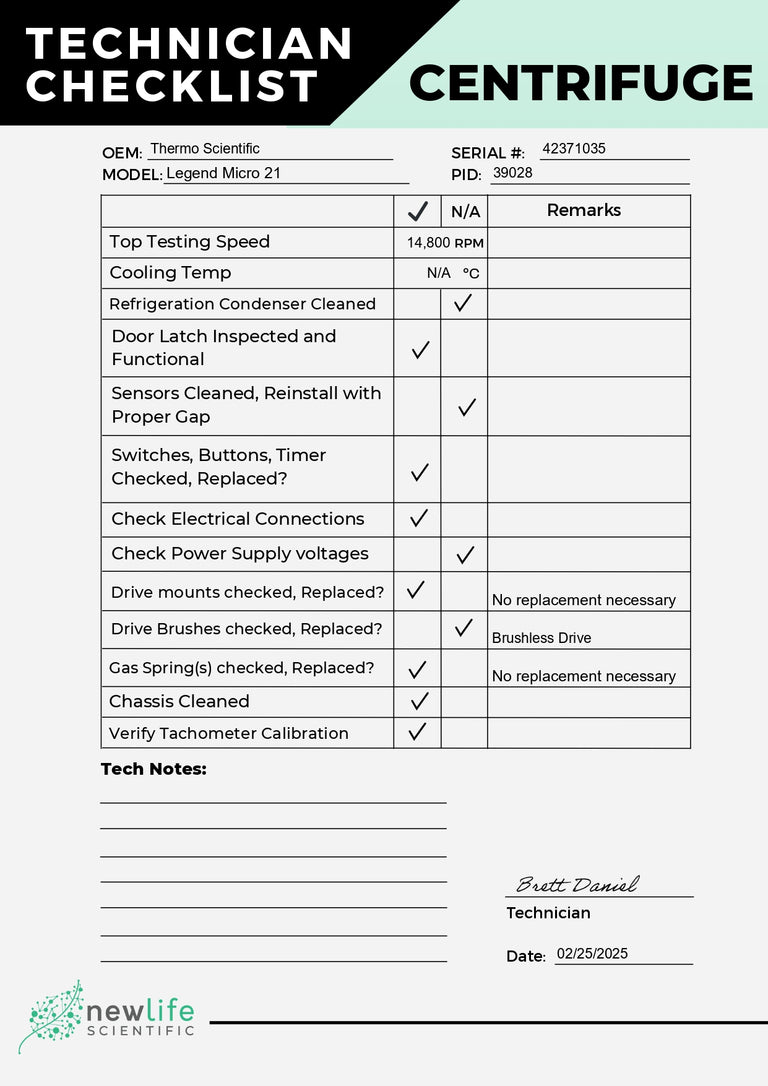
Centrifuge, Benchtop, Low Volume, High RCF
Thermo Legend Micro 21 Benchtop Microcentrifuge 75002436 with Rotor 75003424
Item No. 26532
• Mfg. Date 2018
• 14,800 rpm
• 21,100 x g
• 24 x 1.5/2 mL
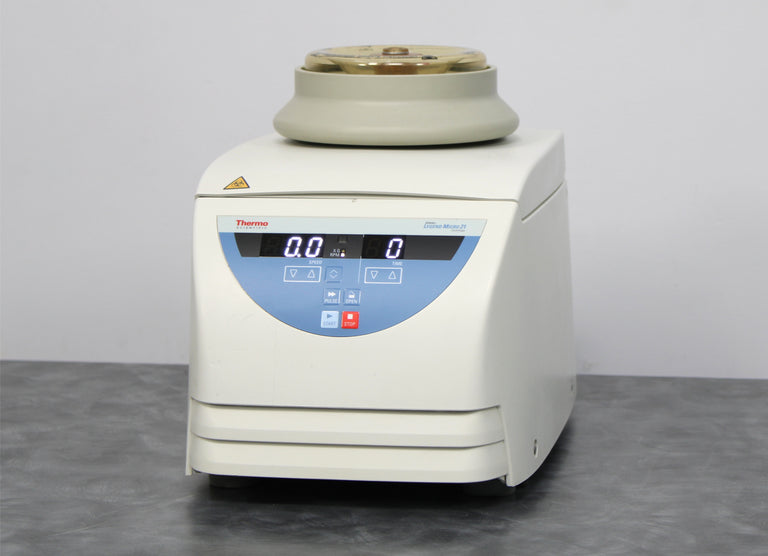
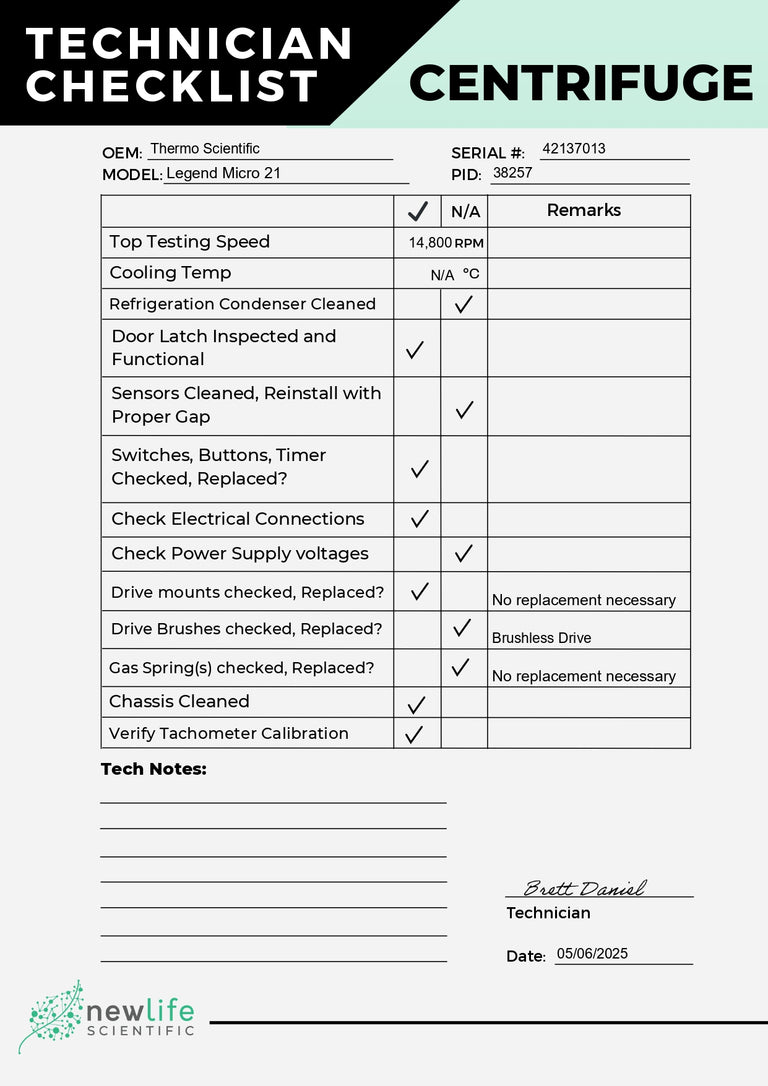
Centrifuge, Benchtop, Low Volume, High RCF
Thermo Sorvall Legend Micro 21 Benchtop Microcentrifuge 75002436 and Rotor
Item No. 25838
• Mfg. Date 2017
• 14,800 rpm
• 21,100 x g
• 24 x 1.5/2 mL
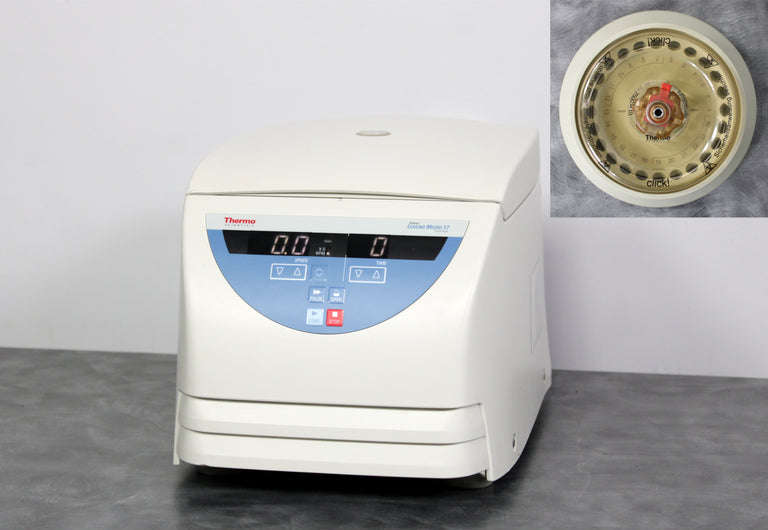
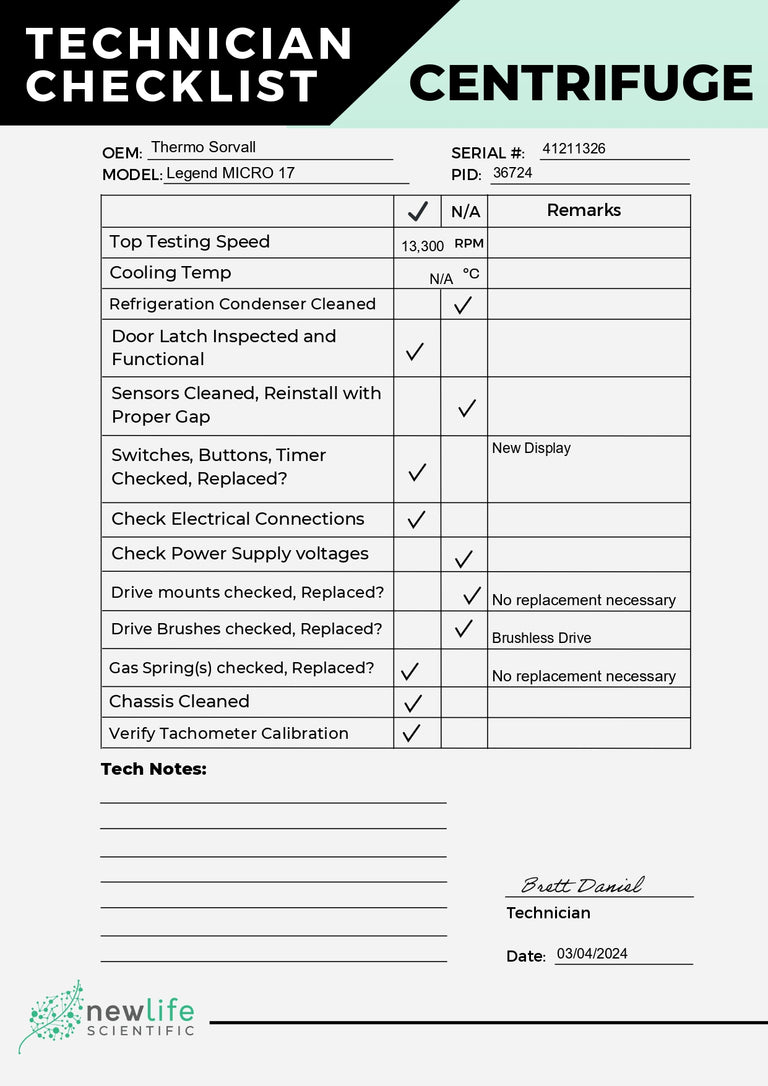
Centrifuge, Microcentrifuge
Thermo Legend Micro 17 Benchtop Microcentrifuge 75002431 and Rotor 75003424
Item No. 24473
• Mfg. Date 2011
• 13,300 rpm
• 17,000 x g
• 24 x 1.5/2 mL
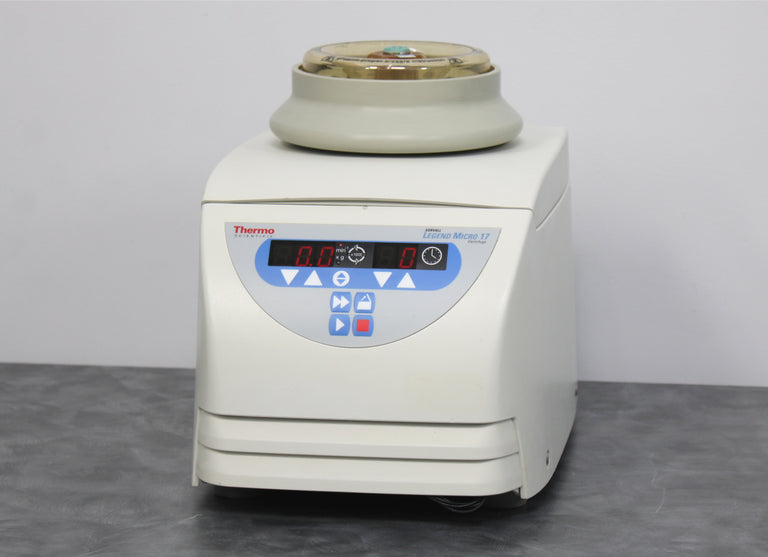
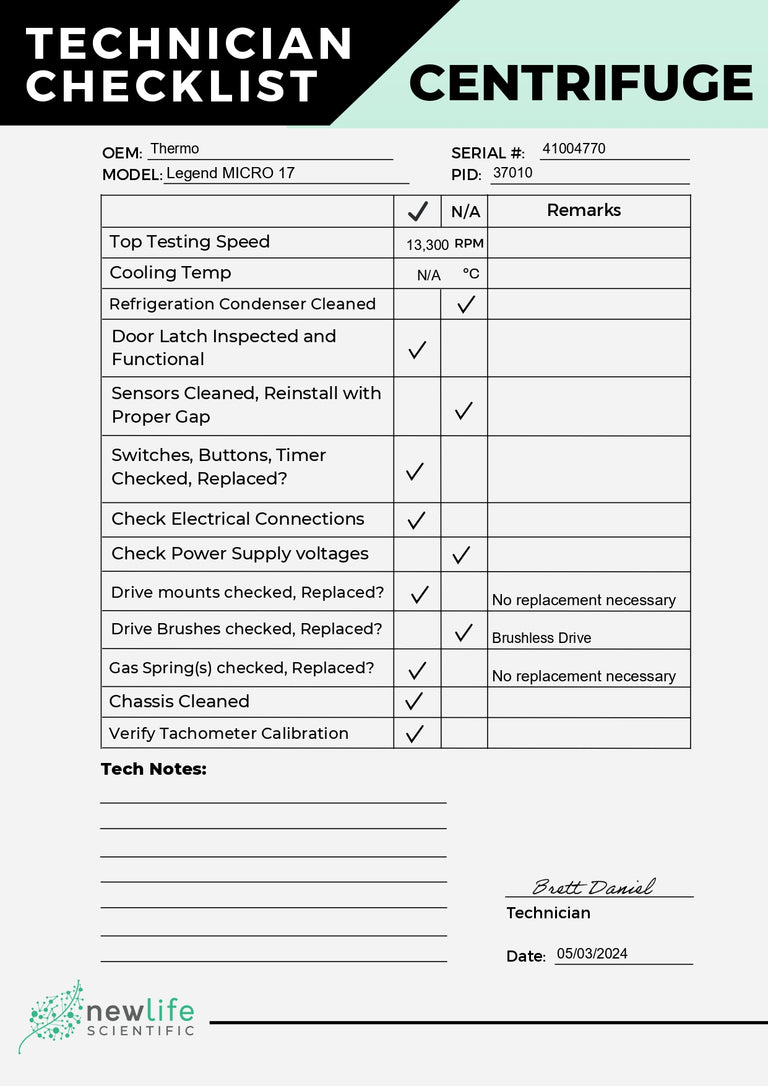
Centrifuge, Microcentrifuge
Thermo Legend Micro 17 Benchtop Microcentrifuge 75002431 with Rotor 75003424
Item No. 24745
• Mfg. Date 2009
• 13,300 rpm
• 17,000 x g
• 24 x 1.5/2 mL
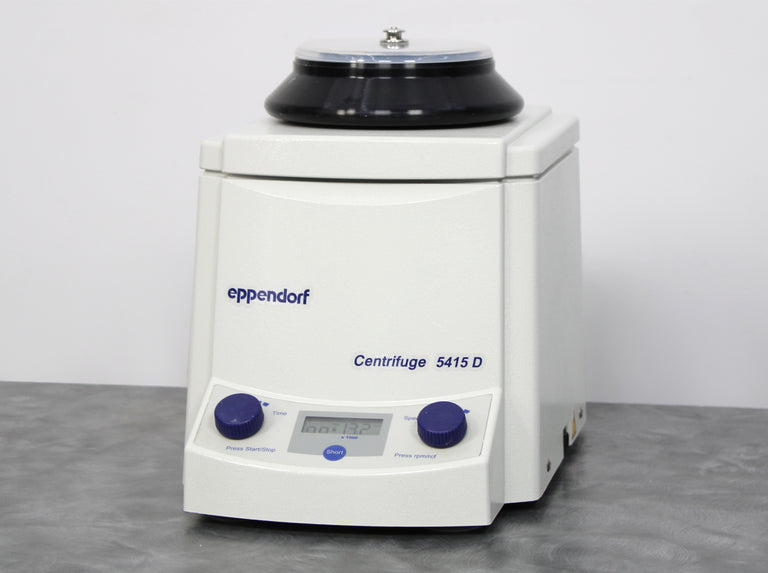
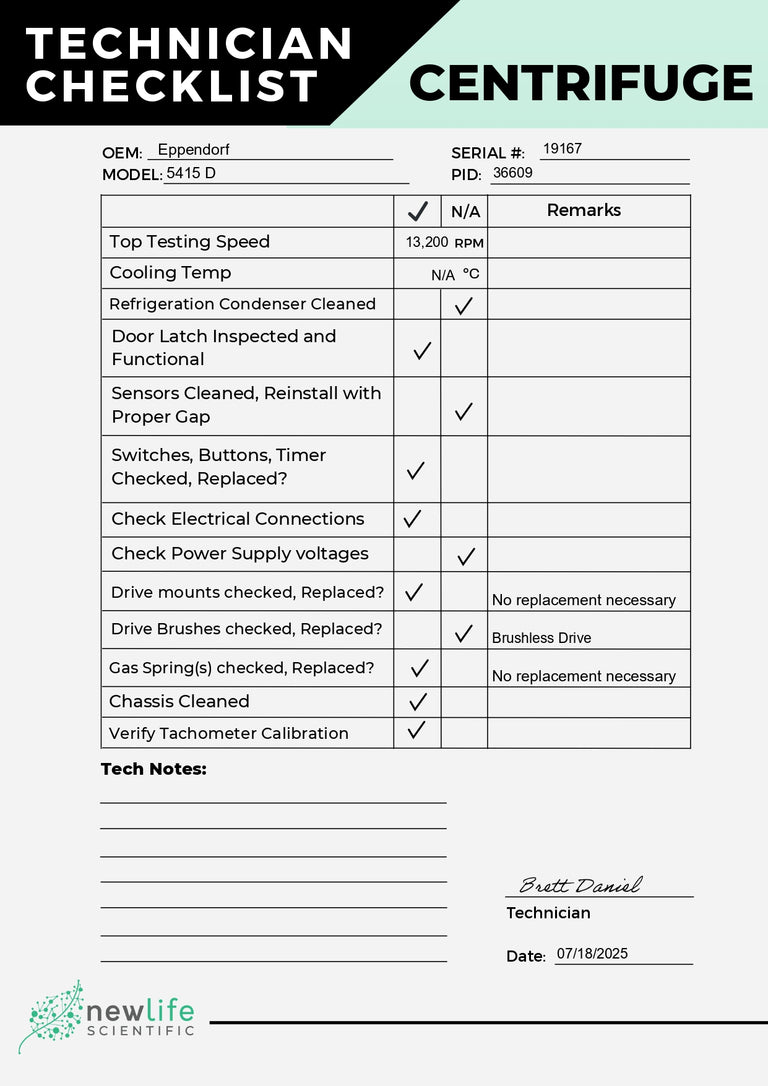
Centrifuge
Eppendorf 5415D 5425 Benchtop Microcentrifuge with F45-24-11 Fixed Angle Rotor
Item No. 24367
• Mfg. Date 2003
• 13,200 rpm
• 16,110 x g
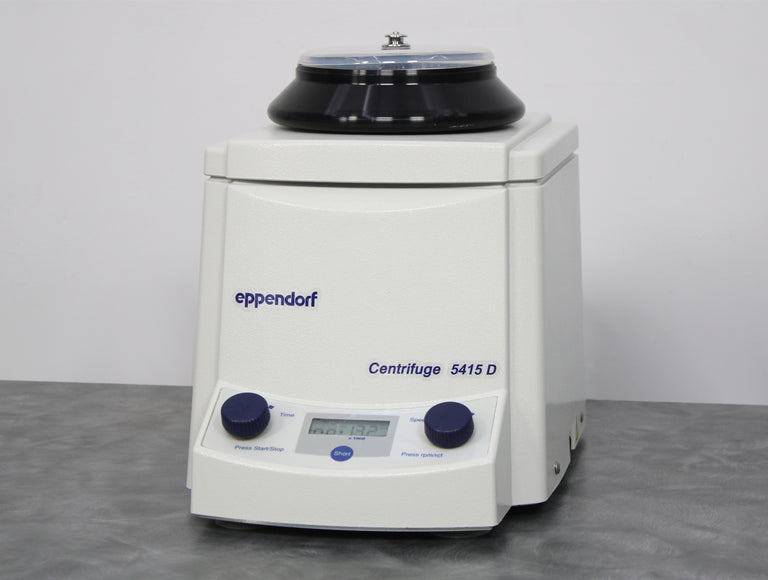
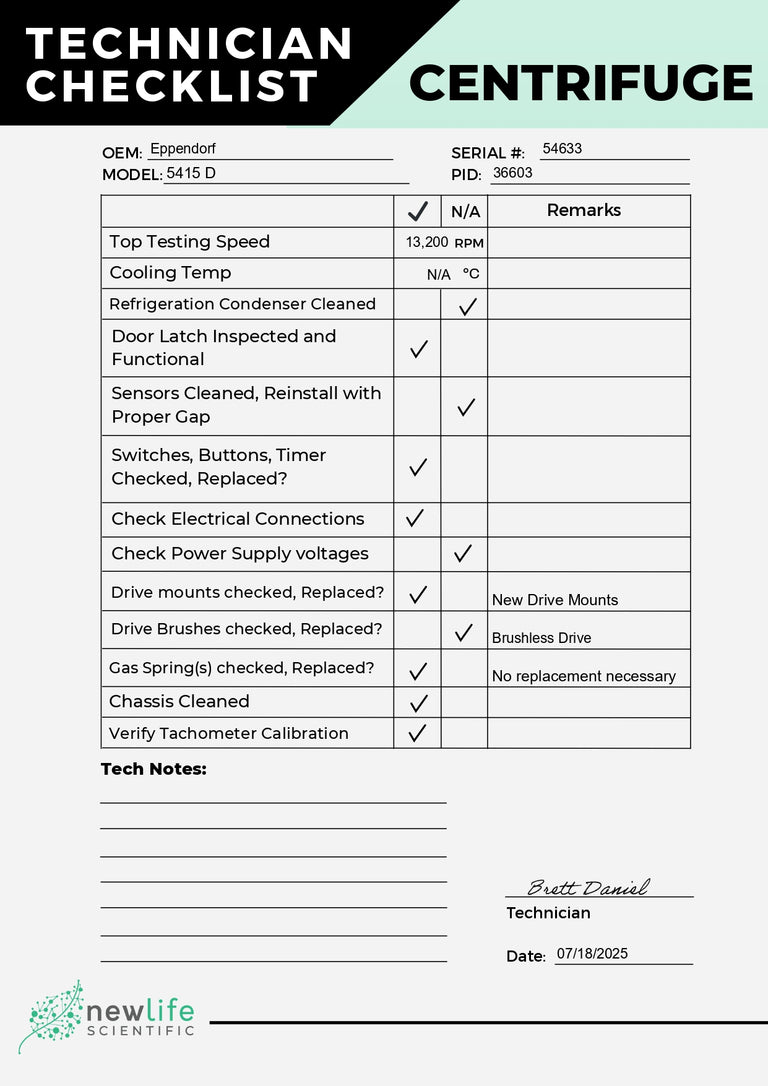
Centrifuge
Eppendorf 5415D 5425 Benchtop Microcentrifuge with F45-24-11 Rotor
Item No. 24359
• Mfg. Date 2000
• 13,200 rpm
• 16,110 x g
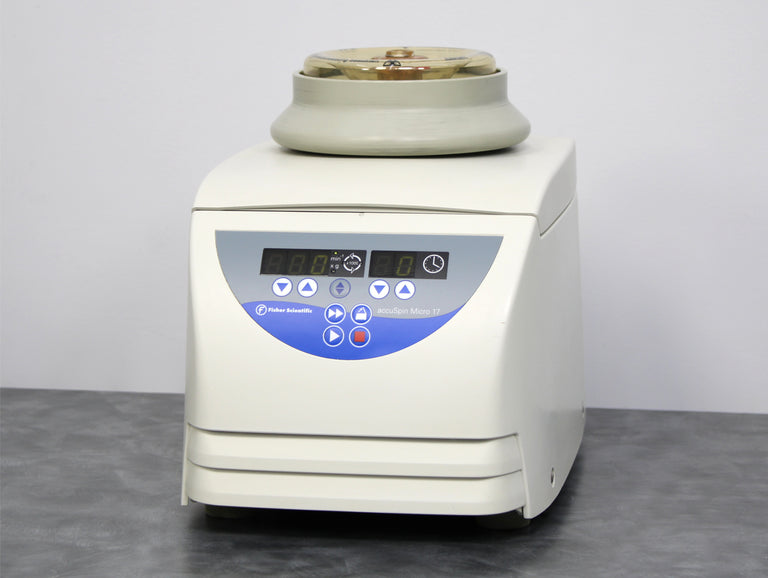
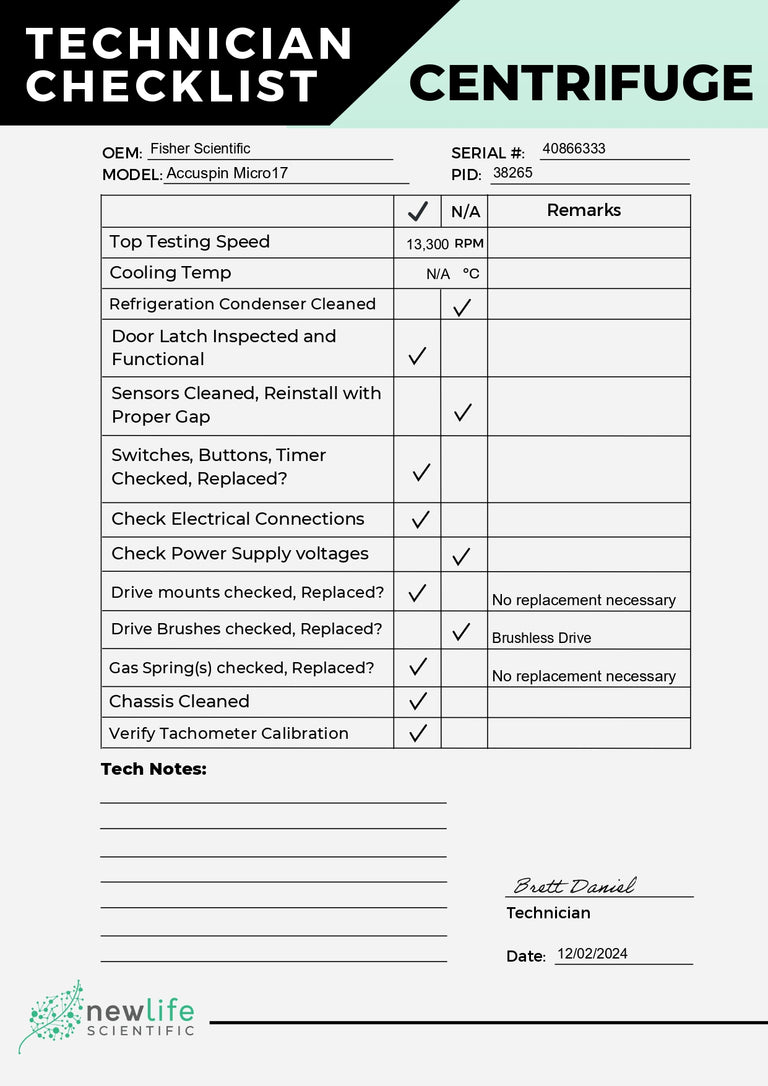
Centrifuge, Microcentrifuge
Fisher Scientific AccuSpin Micro 17 Benchtop Microcentrifuge 75002461 with Rotor
Item No. 25846
• Mfg. Date 2008
• 13,300 rpm
• 17,000 x g
• 24 x 1.5/2 mL
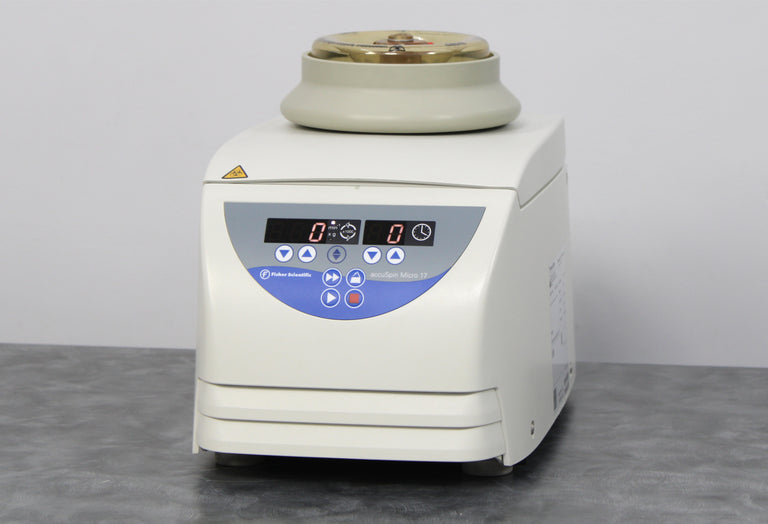

Centrifuge, Microcentrifuge
Thermo Fisher AccuSpin Micro 17 75002461 Benchtop Microcentrifuge with Rotor
Item No. 28069
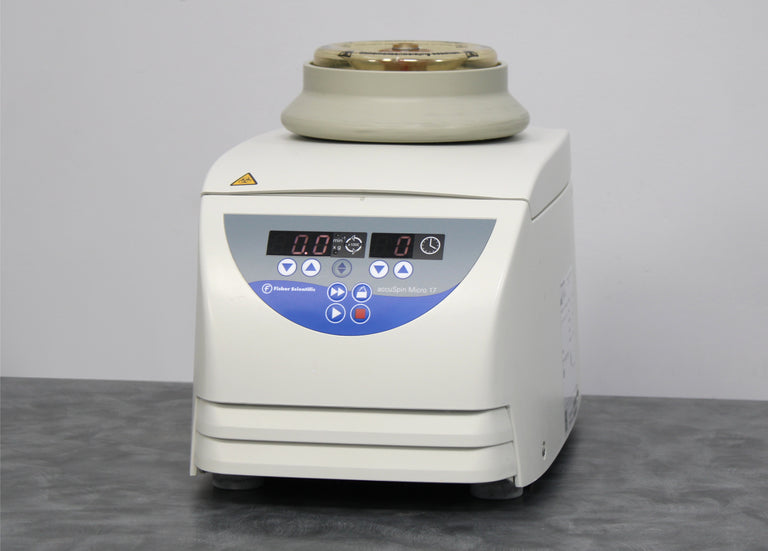

Centrifuge, Microcentrifuge
Thermo Fisher AccuSpin Micro 17 Benchtop Microcentrifuge 75002461 and Rotor
Item No. 27929
• Mfg. Date 2019
• 13,300 rpm
• 17,000/17,999 x g
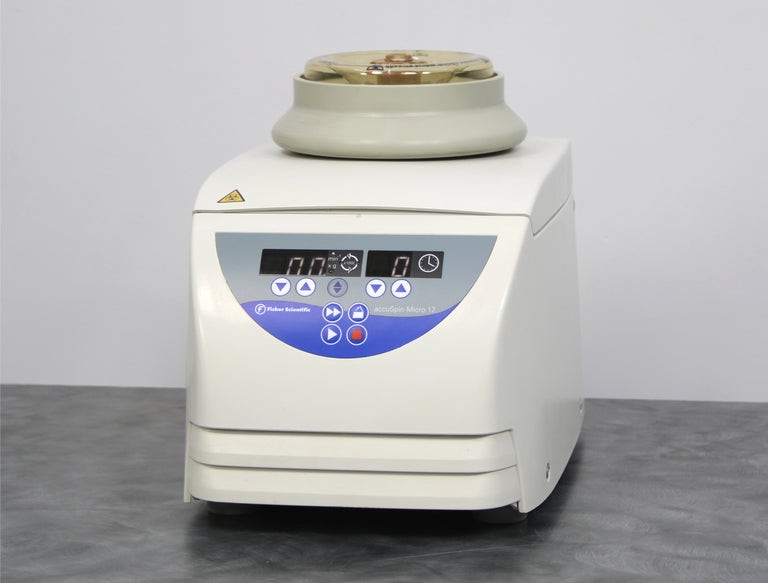
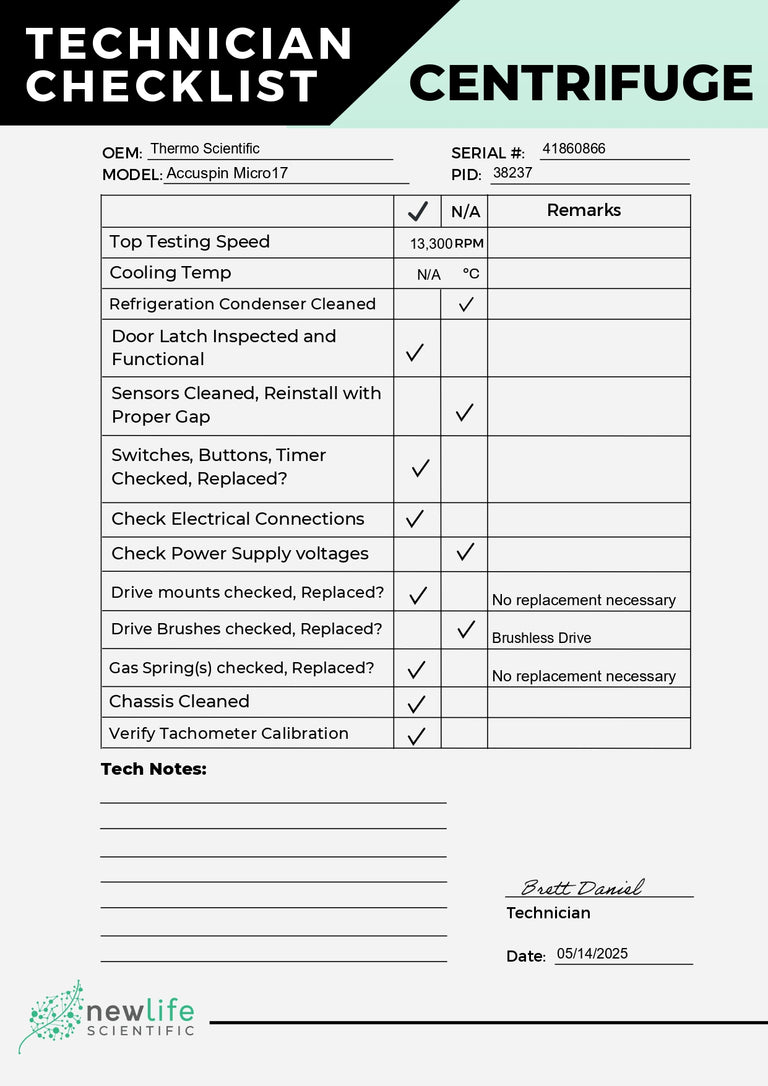
Centrifuge, Microcentrifuge
Thermo Fisher AccuSpin Micro 17 Benchtop Microcentrifuge 75002461 with Rotor
Item No. 25826
• Mfg. Date 2015
• 13,300 rpm
• 17,000 x g
• 24 x 1.5/2 mL
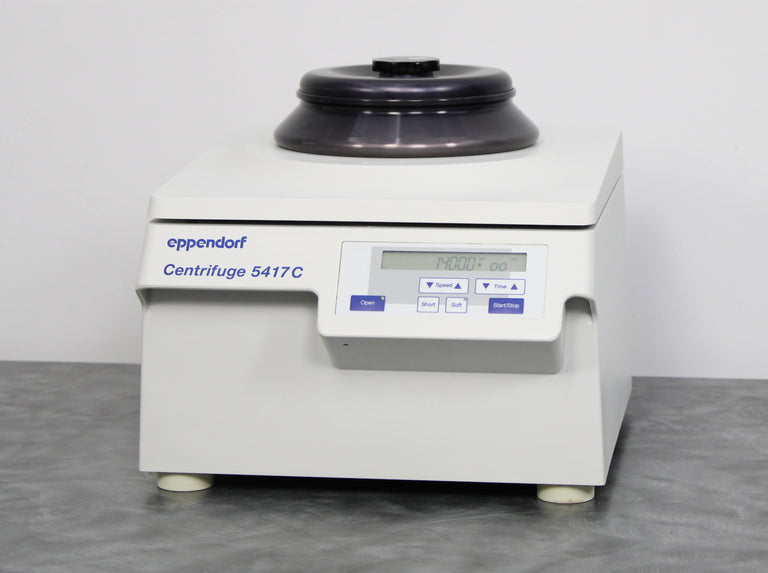
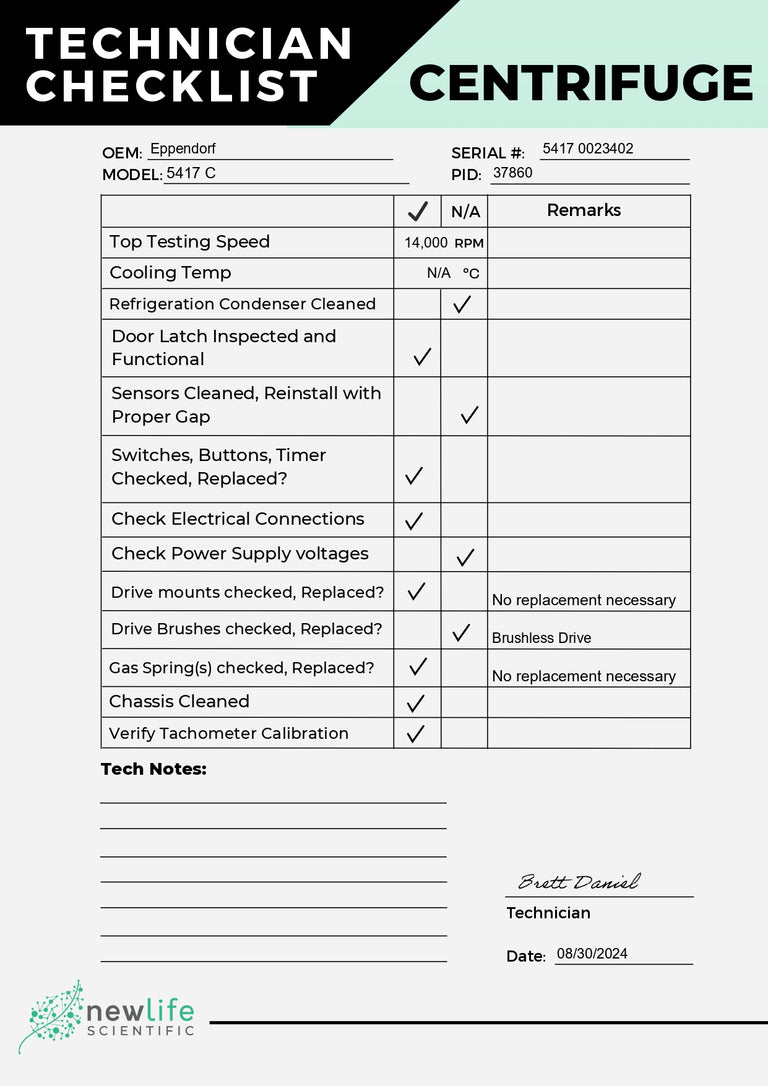
Centrifuge
Eppendorf 5417C High Speed Benchtop Microcentrifuge 5417 and F45-30-11 Rotor
Item No. 25493
• Mfg. Date 2006
• 16,400 rpm
• 30 x 2mL Safe-lock microcentrifuge tubes
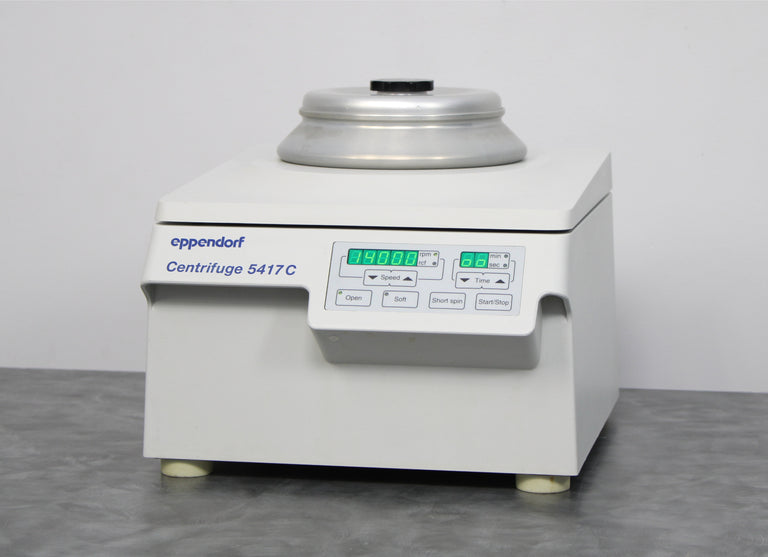
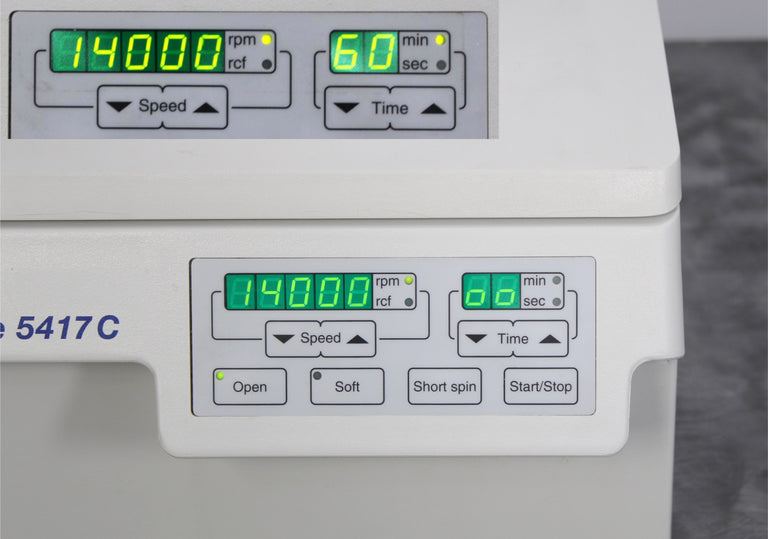
Centrifuge, Microcentrifuge
Eppendorf 5417C High Speed Benchtop Microcentrifuge 5417 with F45-30-11 Rotor
Item No. 26759
• Mfg. Date 1998
• 14,000 rpm
• 30 x 2mL Safe-lock microcentrifuge tubes
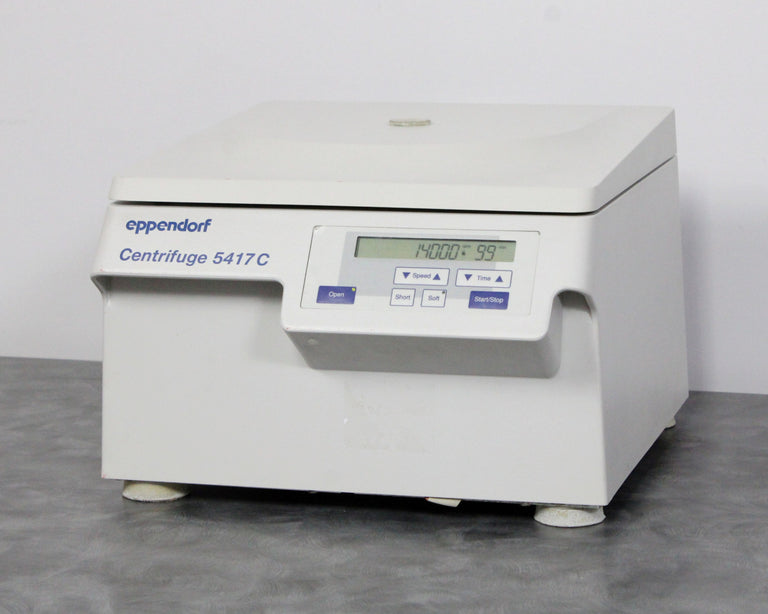
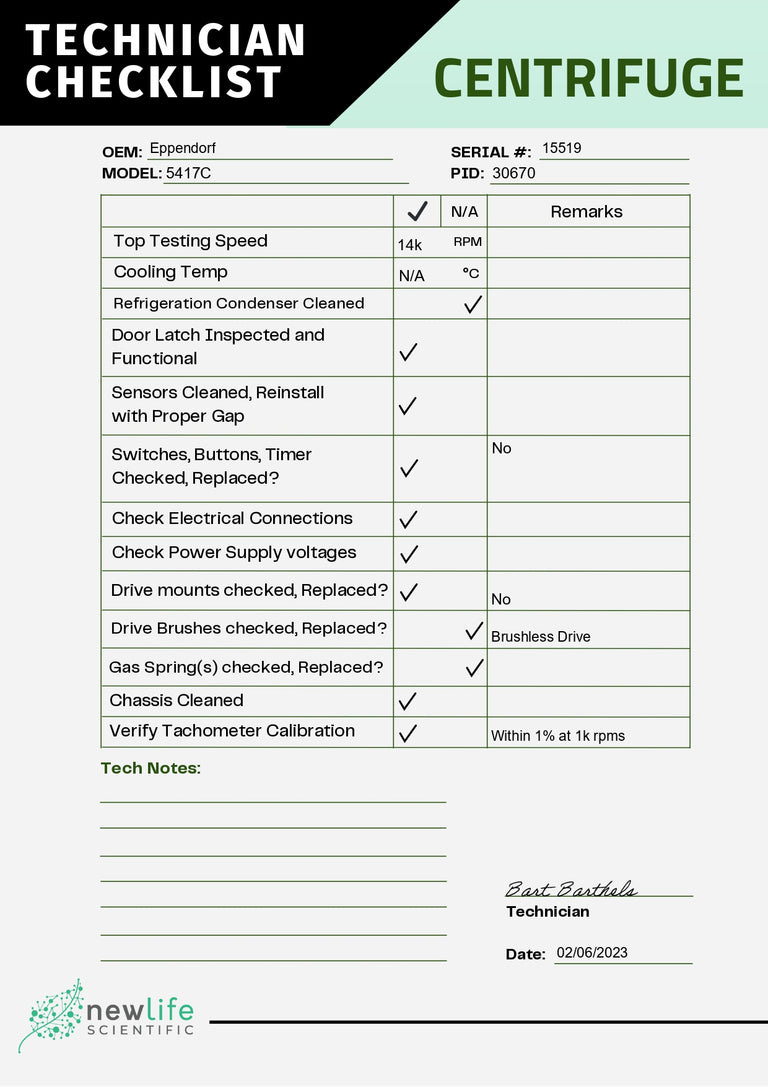
Centrifuge, Microcentrifuge
Eppendorf 5417C High-Speed Benchtop Microcentrifuge
Item No. 19337
• Mfg. Date 2000
• 25,000 x g
• 16,400 rpm
• 30 x 2.0 ml
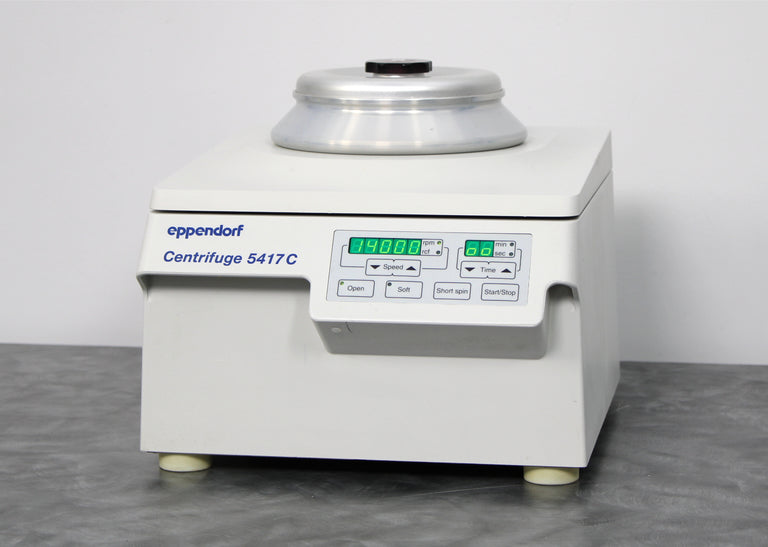
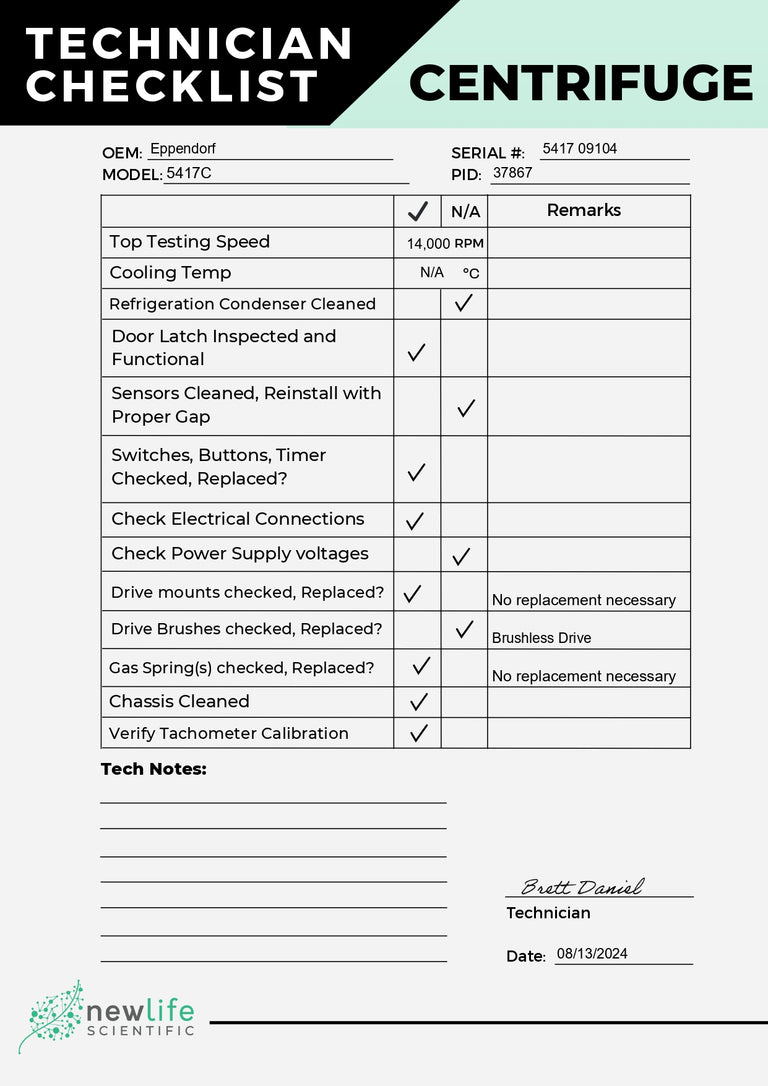
Centrifuge, Microcentrifuge
Eppendorf 5417C High-Speed Benchtop Microcentrifuge 5417 and F45-30-11 Rotor
Item No. 25500
• Mfg. Date 1998
• 14,000 rpm
• 30 x 2 mL Safe-lock microcentrifuge tubes
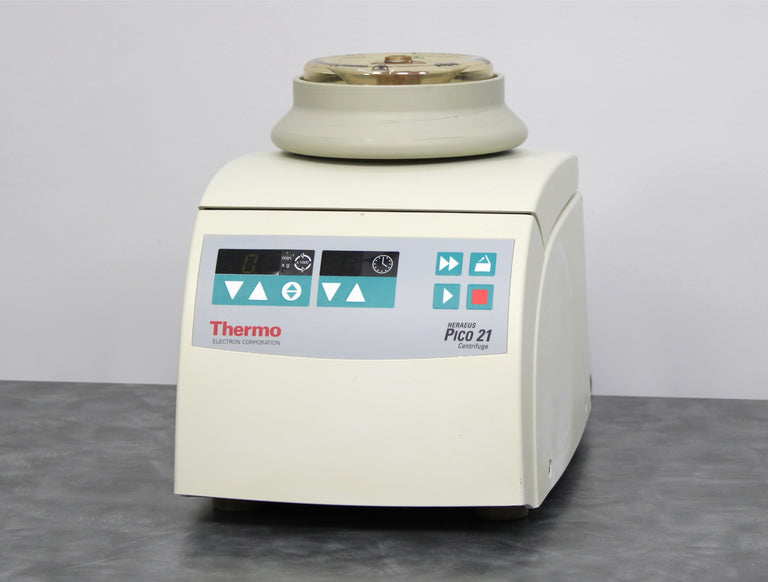
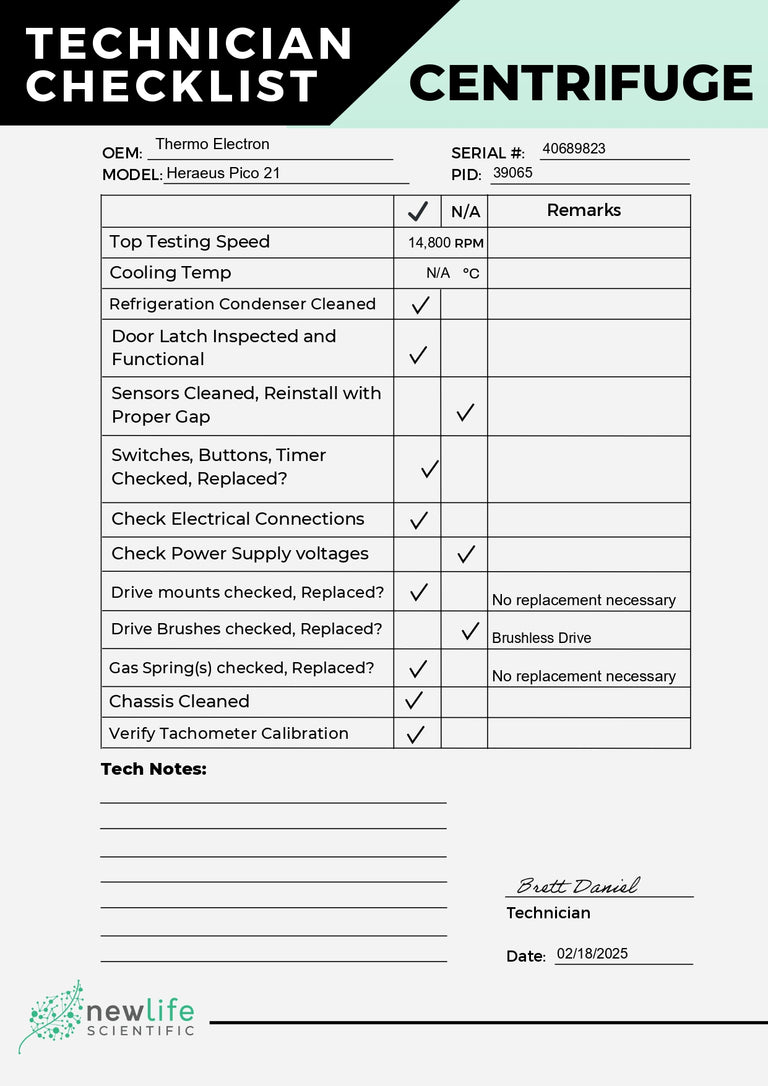
Centrifuge, Microcentrifuge
Thermo Electron Heraeus Pico 21 Benchtop Microcentrifuge 75002416 with Rotor
Item No. 26568
• Mfg. Date 2007
• 14,800 rpm
• 21,100 x g
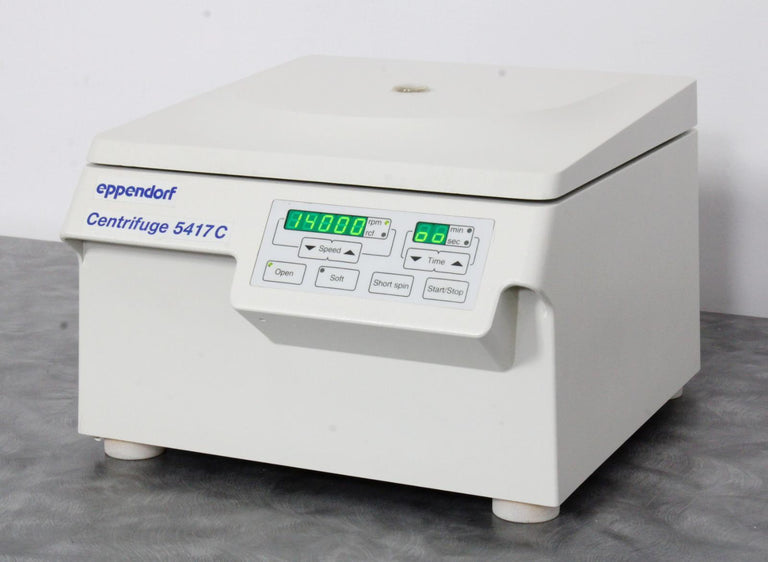
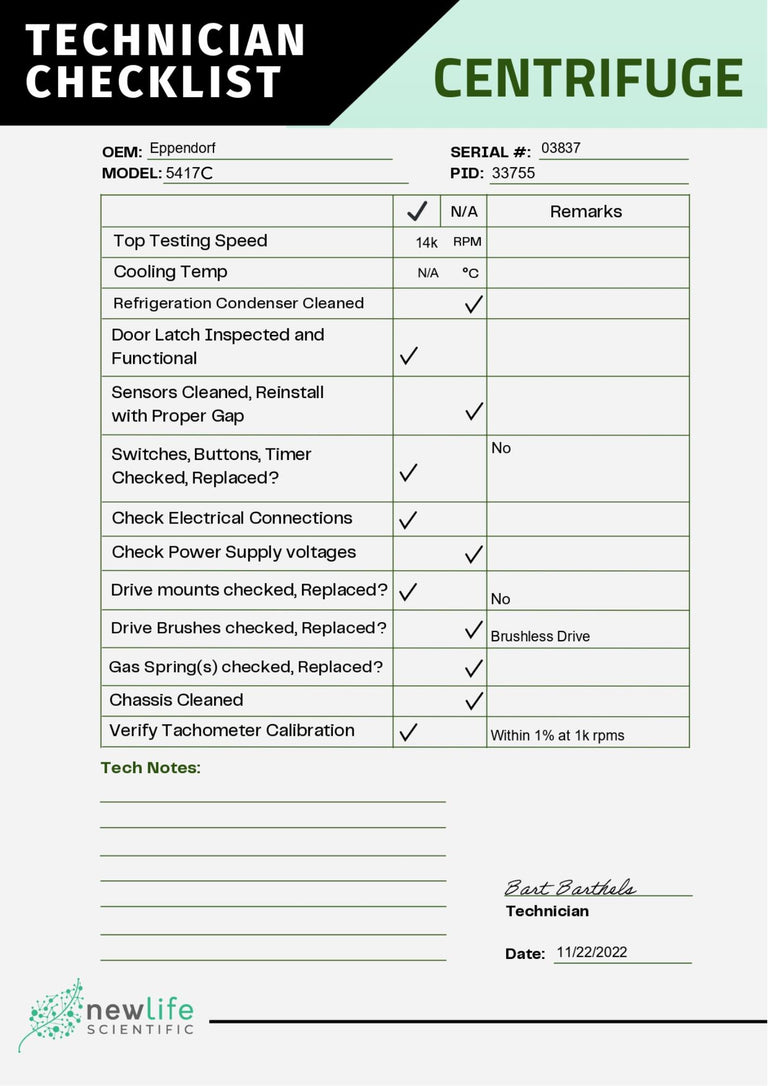
Microcentrifuge, Benchtop
Eppendorf 5417C High-Speed MicroCentrifuge Benchtop Centrifuge
Item No. 21940
• Mfg. Date 1998
• 16,400 rpm
• 30 x 2 mL Safe-lock microcentrifuge
Microcentrifuges
Micro-sample processing provides biological and biochemical researchers with quick separations and clarifications. Microcentrifuges rapidly process small sample volumes, from 0.2 milliliters to 5 milliliters. Despite their small size, these devices operate at high speeds to separate components based on density or sedimentation rates.
These devices are widely used in biochemistry, clinical research and molecular biology, and some applications include protein purification, DNA or RNA isolation and quick sedimentation of cellular components. Most models have user-friendly, simple control panels that allow you to set parameters for speed, temperature and time.
Features of Microcentrifuges
The main differences between microcentrifuges and others are the device's size, suitability for handling small-volume samples and speed capabilities. It is essential to pick a microcentrifuge made from materials with chemical corrosion resistance to ensure the device is more durable and can operate safely.
Microcentrifuge Size
Compared to other centrifuges, these are smaller and more portable, making them suitable for benchtop use and allowing for more accessible transportation and relocation between labs. These features make them an ideal choice for laboratories with limited space. Their size does not limit their capabilities, as these devices have the same basic functions as their larger counterparts.
Rotor Configuration
It is essential to load the microcentrifuge correctly. Balance the sample tubes on the rotor and ensure loads have the same mass and weight and ensure they have the same center of gravity, meaning sample tubes should be the same size and weight. An unbalanced load can vibrate during centrifuge, which can damage the rotor.
These devices can feature two types of rotors, which are often interchangeable:
Fixed-angle rotors: These rotors hold tubes at angles between 25 degrees and 40 degrees for effective sample pelleting.
Swinging-bucket rotors: Sample tubes swing outward as the centrifugal force increases and stay horizontal to minimize the shear forces to which delicate samples are exposed compared to the force from a fixed-angle rotor.
Shop Used Centrifuge Rotors Browse All Centrifuges
Speed and Capacity
Microcentrifuges are capable of high-speed configurations for rapid separations. These speeds can range from thousands to tens of thousands of RPMs and are helpful in hematology, immunology, endocrinology and microbiology.
A microcentrifuge with a higher G-force will complete separations with more efficiency. These devices typically hold sample volume sizes of 1.5 milliliters. Higher RPMs produce more heat, so it is vital to maintain a consistent temperature, as most hormones and enzymes are temperature-sensitive.
Materials and Composition
These devices are made from durable materials, allowing them to withstand high-speed centrifugation while maintaining reliability. Materials often used to manufacture microcentrifuges are:
Plastics: Polycarbonate provides impact resistance and decent strength. Its transparency allows lab technicians to monitor the centrifugation process safely, and the rotors and rotor adapters may be made from polypropylene, which has a high chemical resistance.
Metals: Rotor components may be made of aluminum, which is lightweight and robust. Parts of the centrifuge may be reinforced with stainless steel. This material is corrosion-resistant and strong enough to support critical structural components.
Composite materials: Some models are made with carbon fiber, which has a high strength-to-weight ratio to the device's weight, an essential characteristic.
Rubber or silicone: Gaskets and seals are supported by rubber and silicone to reduce device vibration and ensure proper sealing. These high-quality components withstand regular use for longevity.
Benefits of Buying Used Microcentrifuges
Purchasing a used microcentrifuge with a rotor can cut costs significantly — often helping you find equipment for 30% to 70% under new equipment prices. Buying used instruments has other advantages, such as:
Environmental benefits: Manufacturing new equipment may involve non-environmentally friendly processes. By purchasing used equipment, your lab reduces raw material usage.
Access to quality equipment: The cost savings allow labs with minimal funding to acquire high-quality equipment to benefit from advanced technology. Used instruments from reputable suppliers like New Life Scientific have long remaining service lives, helping you get the most out of your investment.
Lab scalability: With access to more equipment, labs can scale their operations to move their science forward. Work acquiring more devices into your budget with dependable products that fulfill essential roles in your lab.
What to Look for in Used Microcentrifuges
When shopping for a microcentrifuge, look for a digital timer, an automatic start and stop timer, a high-quality motor brake and overload protection. These features will simplify using the device in your laboratory. Factors to look for in used microcentrifuges include:
Rotor condition: Microcentrifuges use a rotor to drive the device's speed and efficiency. Ensure that the rotor and accessories are in good condition before you purchase a microcentrifuge.
Warranty: A warranty on used equipment gives you peace of mind. At New Life Scientific, we offer a 90-day warranty to fix or replace equipment if needed.
Safety features: Microcentrifuges have additional safety features to lower operational risks. These include lid drop protection, imbalance detection, ventilation and exposure protection that keeps researchers safe in case of spills in the chamber.
Appearance: Do a physical check to ensure the device has only superficial damage, if any.
Equipment From Top Microcentrifuge Manufacturers
New Life Scientific buys and sells high-quality used benchtop microcentrifuges from a range of trusted manufacturers. These brands manufacture microcentrifuges that assist with numerous lab functions, from enzyme kinetics to nucleic acid purification, microscale research and experiments, and other tasks.
ThermoFisher Scientific
ThermoFisher Scientific designs microcentrifuges with a compact footprint. These are ideal for nucleic acid minipreps, microtube processing and hematocrit capillaries.
Eppendorf
This manufacturer produces whisper-quiet microcentrifuges with multi-purpose capabilities well-suited for smaller laboratories. Their reputation in reliability spans over 75 years, and New Life Scientific offers various used Eppendorf microcentrifuge options.
Beckman Coulter
Since 1935, Beckman Coulter has manufactured laboratory equipment with innovation and accuracy. We sell used Beckman Coulter microcentrifuges to complement various micro-volume protocols and sample processing needs for clinical applications.
Why Buy Microcentrifuges From New Life Scientific?
New Life Scientific stocks used refrigerated and benchtop microcentrifuges. All top-tier products are pre-tested and certified, making us the trusted name in used laboratory equipment. We have a 24-hour or faster response time on all queries. Place your order online now or reach out to our team for assistance with your purchase.

WE SHIP WORLDWIDE
Many of our international orders have custom-built wooden crates to fully enclose them during shipping.
Please contact us for accurate shipping charge.
Contact UsHear From Our Customers
Frequently Asked Questions
Yes, we ship all over the world. Shipping costs will apply, and will be added at checkout. We run discounts and promotions all year, so stay tuned for exclusive deals.
It depends on where you are. Orders processed here will take 5-7 business days to arrive. Overseas deliveries can take anywhere from 7-16 days. Delivery details will be provided in your confirmation email.
We use all major carriers, and local courier partners. You’ll be asked to select a delivery method during checkout.
Buy & Sell Equipment at New Life Scientific
We can purchase your used lab equipment.
Contact us for assistance!

























